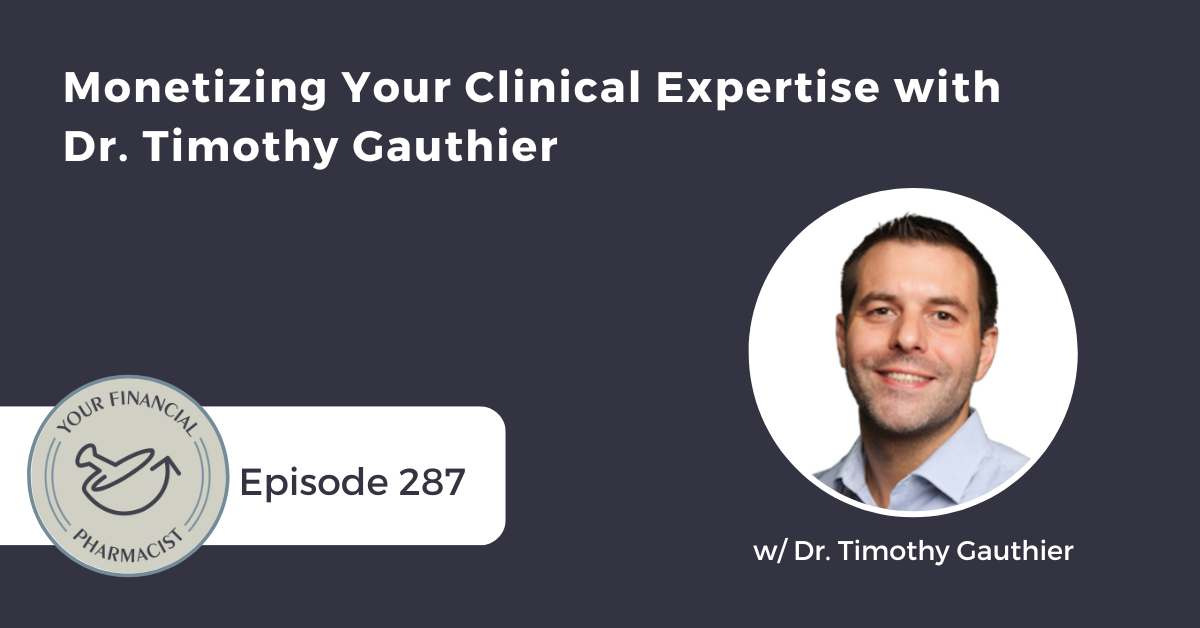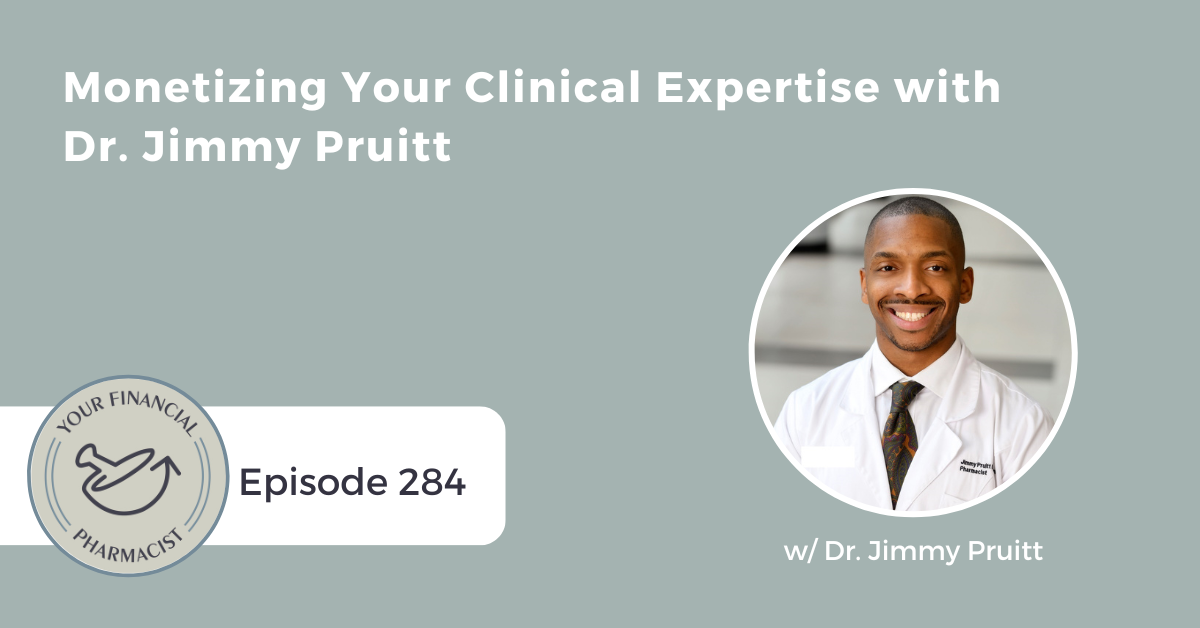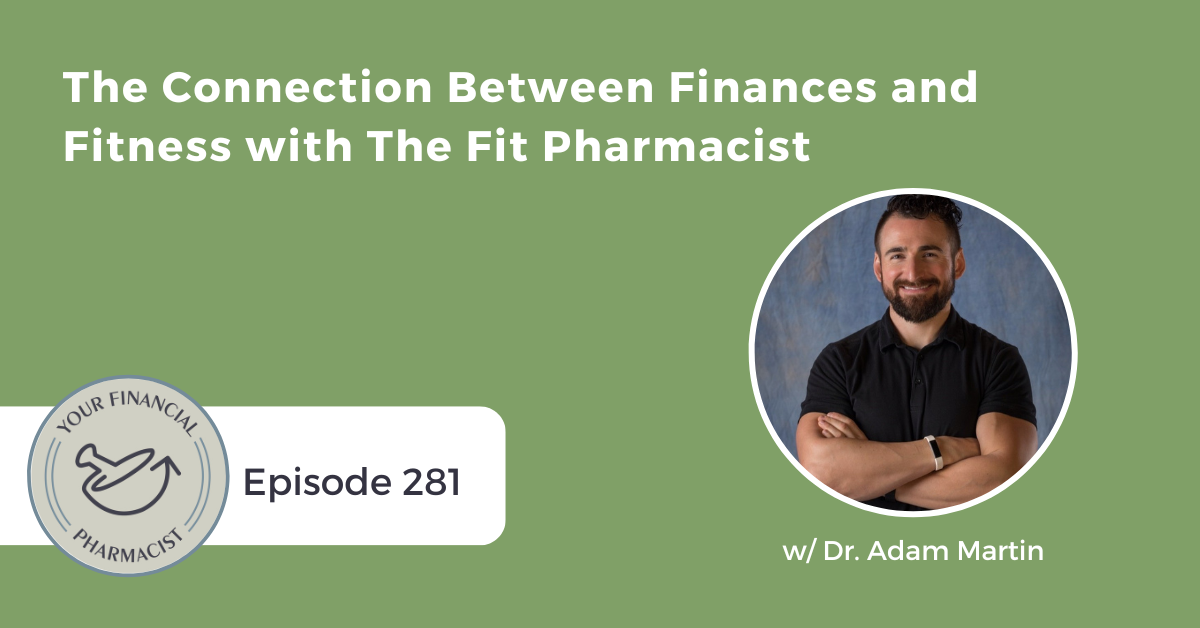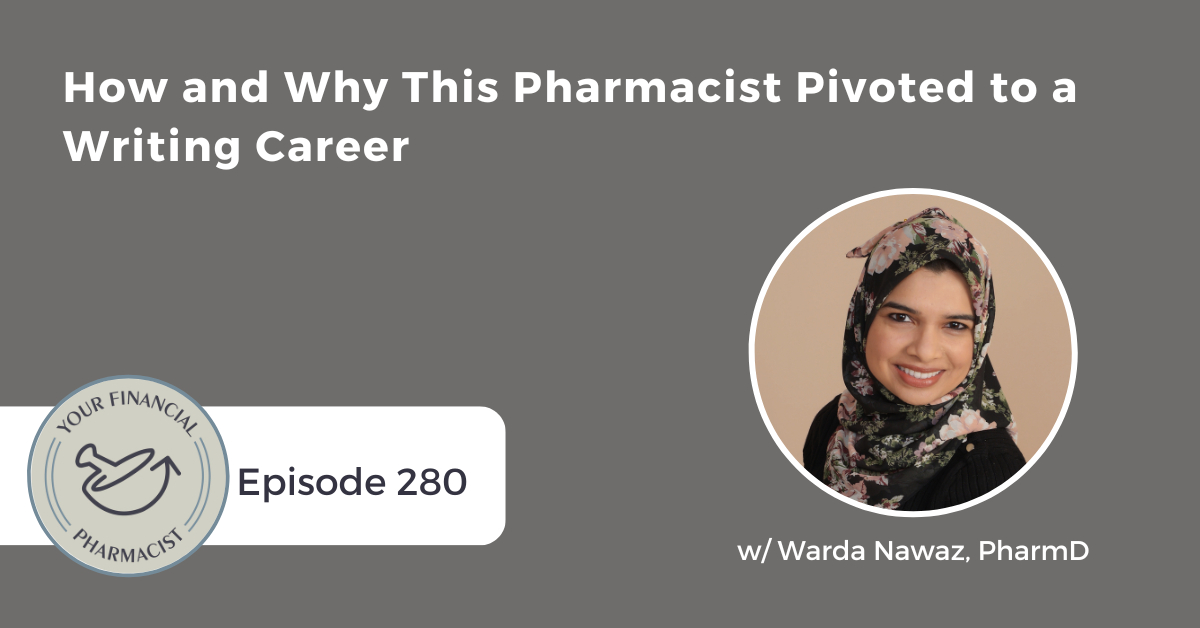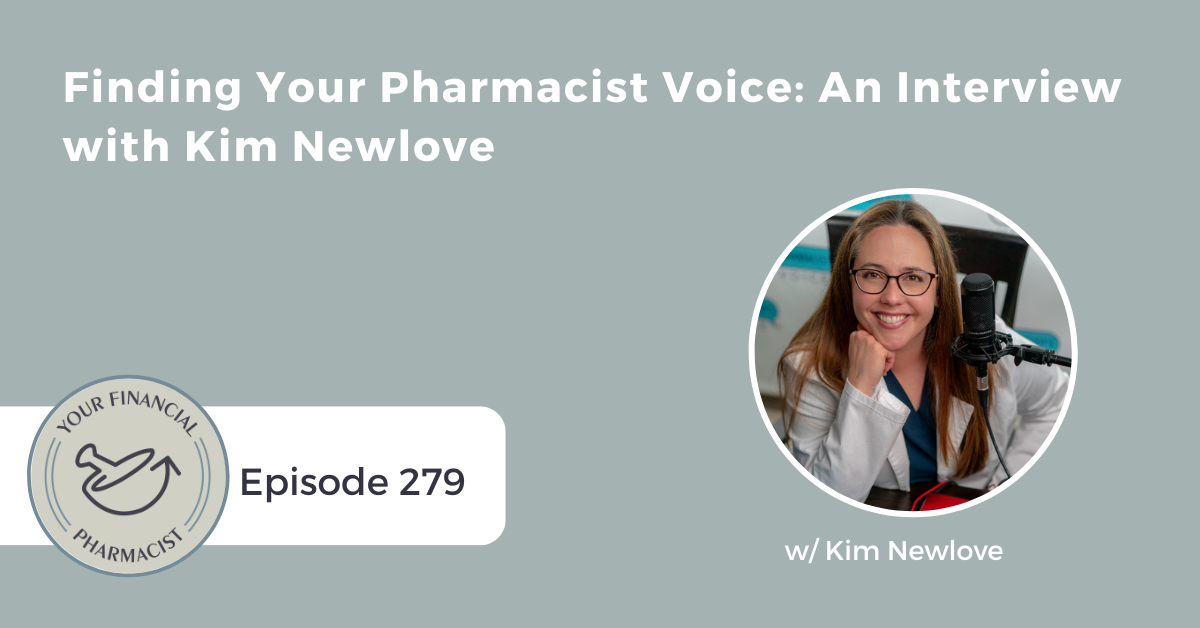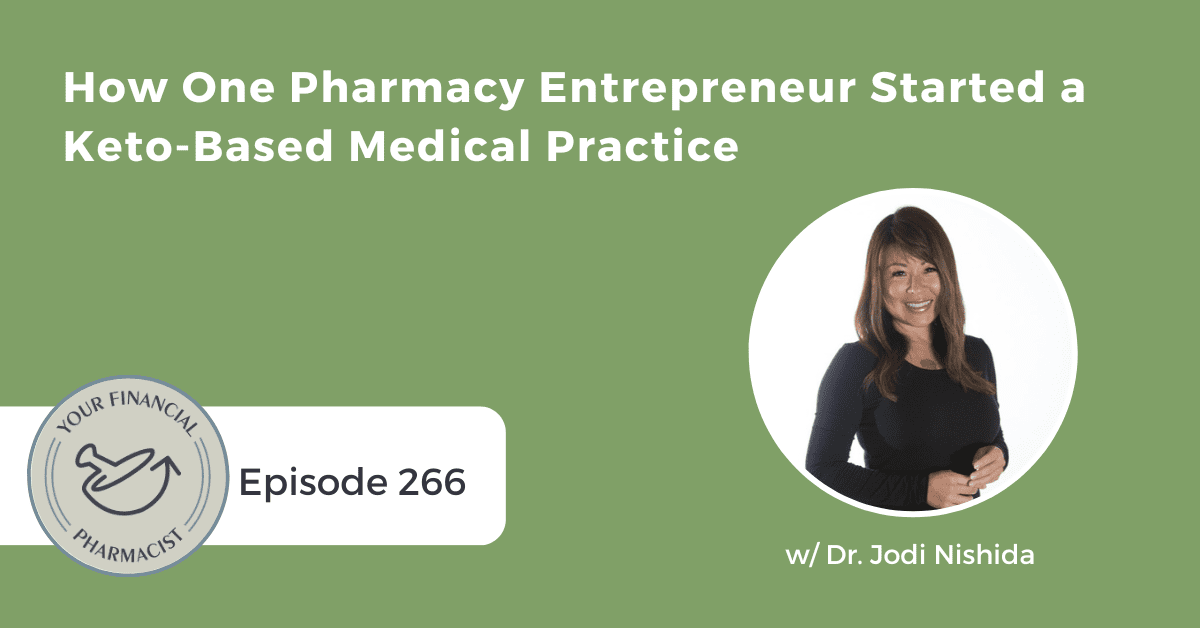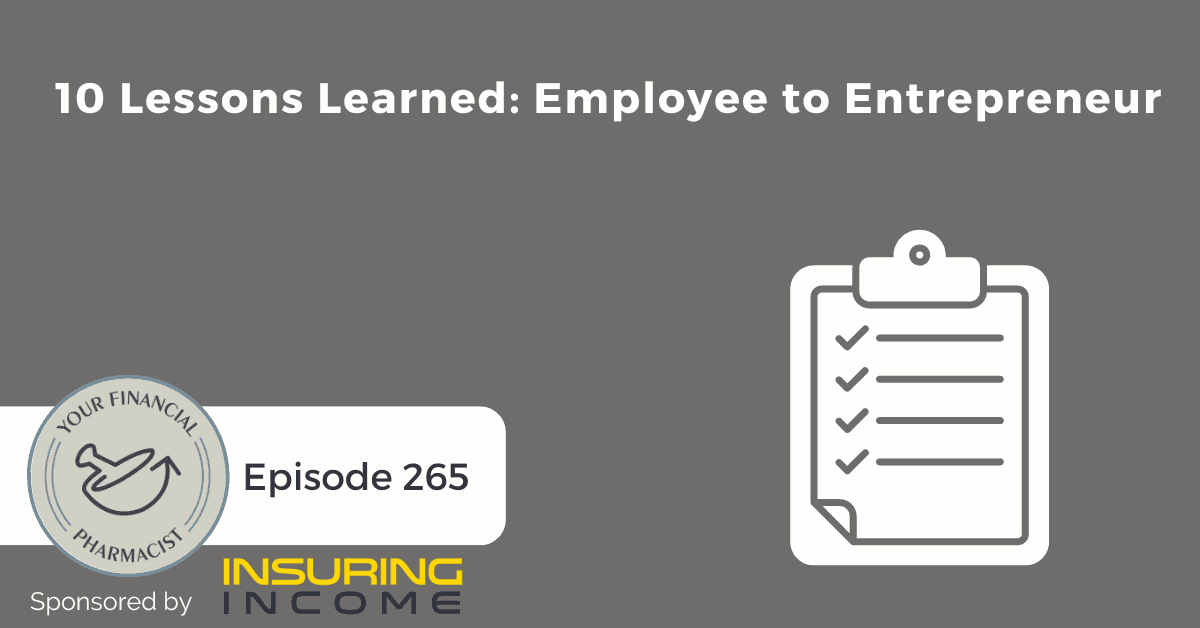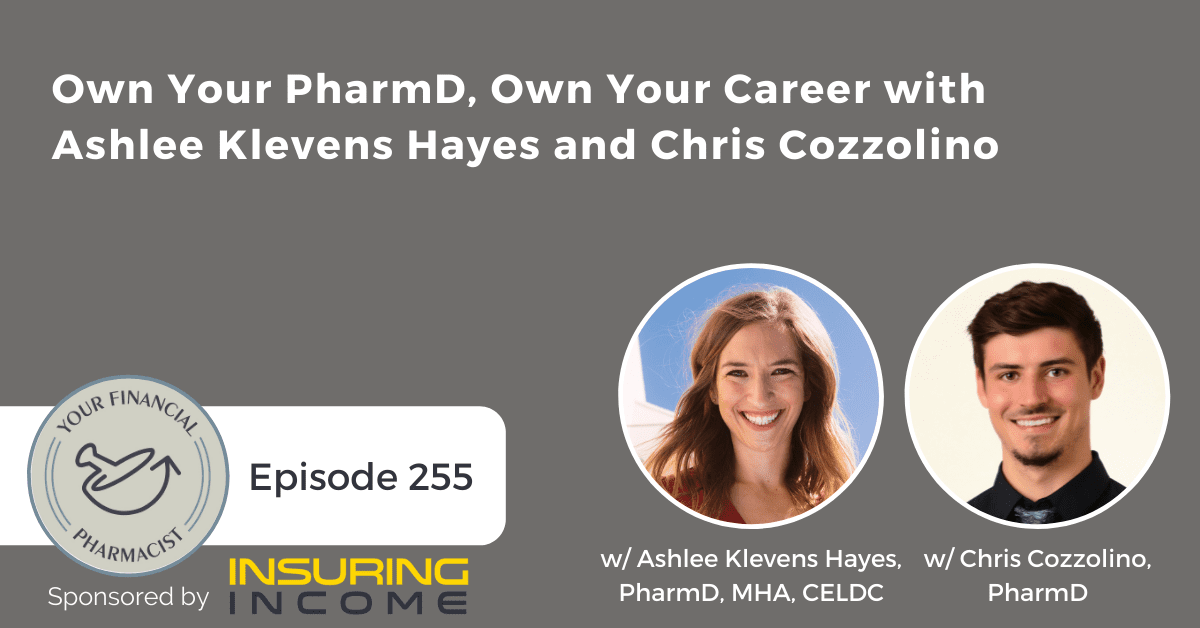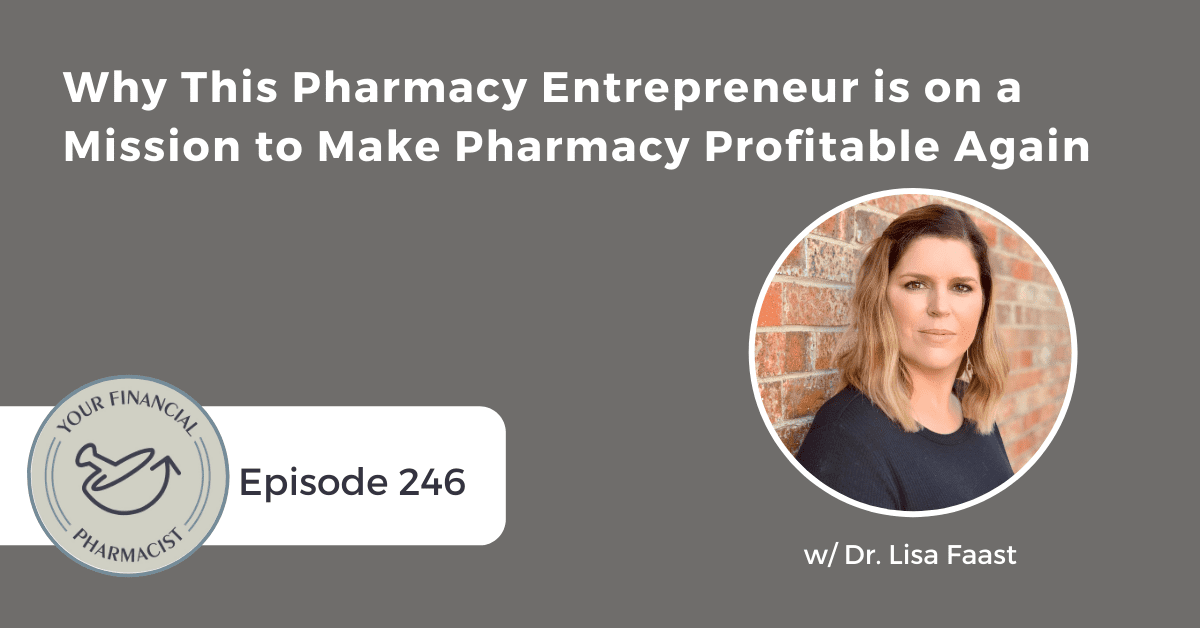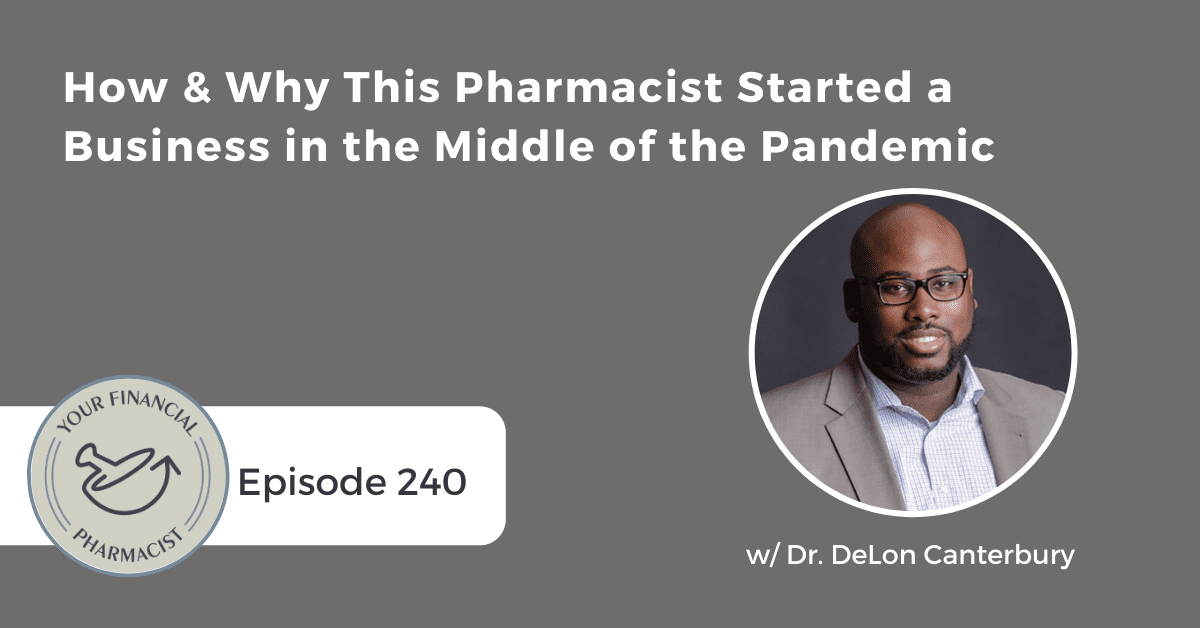Timothy Gauthier, antimicrobial stewardship pharmacist and pharmacy entrepreneur, discusses the genesis of IDStewardship.com and LearnAntibiotics.com, how he has monetized his clinical expertise to create passive revenue streams, and how he balances the demands of entrepreneurship with his personal and professional commitments.
About Today’s Guest
Timothy P. Gauthier, Pharm.D., BCPS, BCIDP is a pharmacist trained in infectious diseases and antimicrobial stewardship. He is a clinician, researcher, educator, and author. He is an advocate for antimicrobial stewardship and pharmacy education.
Dr. Gauthier graduated from Northeastern University’s School of Pharmacy (Boston, MA) in 2008. He then completed a Post-Graduate Year-1 Pharmacy Practice Residency and a Post-Graduate Year-2 Infectious Diseases Pharmacy Residency at Jackson Memorial Hospital (Miami, FL). Since finishing terminal training he has worked in academia (Nova Southeastern University, 2010-2015), clinical practice (Miami Veterans Affairs Healthcare System, 2015-2019), and a leadership role (Baptist Health South Florida, 2019-current), all focusing on advancing the fields of infectious diseases pharmacy and antimicrobial stewardship.
He holds certifications from the Board of Pharmacy Specialties for Pharmacotherapy and Infectious diseases. He has completed the Making A Difference in Infectious Diseases Pharmacotherapy Antimicrobial Stewardship Training Program.
He is the creator and editor-in-chief of www.IDstewardship.com, www.LearnAntibiotics.com, and the many @IDstewardship social media profiles. He co-hosts the #ASPchat each month on Twitter. He reaches thousands of people each day on the internet and on social media, where he aims share reliable and relevant information from the world of pharmacy and healthcare in general. IDstewardship.com alone has registered over 5,00,000 page views as of November 2022. He is also the author of the recently released book “Learn Antibiotics” which is now available for sale on Amazon.
Episode Summary
This week on the YFP Podcast, YFP Co-Founder & CEO, Tim Ulbrich, PharmD, welcomes antimicrobial stewardship pharmacist and fellow pharmacy entrepreneur, Tim Gauthier. Tim is the creator of IDStewarship.com and LearnAntibiotics.com. During the show, Tim and Tim discuss the genesis for creating these two learning platforms, how Tim has monetized his clinical experience to create passive streams of income, and how he manages to stay consistent in entrepreneurship while balancing a full-time pharmacy career and fulfilling personal life. Listeners will hear about Tim’s pathway to pharmacy, what drew him into the profession, his passion for infectious disease pharmacy, and what he was hoping to accomplish with his learning platforms, IDStwardship.com and LearnAntibiotics.com. Tim walks us through the content and resources available on his websites and how he has monetized them while providing a wealth of free content to his community. Making things passive and generating passive revenue streams is crucial to Tim, and he shares the tools and systems he has put in place to make that goal possible while balancing other obligations. Tim also discusses the incredible value of community and how he has built an active, engaged pharmacists community that contributes to the platforms in multiple ways. Tim closes with advice for pharmacists looking to follow a similar path in monetizing their clinical expertise.
Links Mentioned in Today’s Episode
- YFP Planning: Financial Planning for Pharmacists
- Schedule a free Discovery Call with YFP Planning
- IDStewardship.com
- LearnAntibiotics.com
- YFP 217: How Kelley Used Her Clinical Expertise to Build a Business
- KelleyCPharmD
- Pharmacy & Acute Care University
- Follow IDstewardship on Instagram: @idstewardship
- Follow IDstewardship, Antibiotic Stewardship & Pharmacy Education on Facebook
- Follow IDstewardship on Twitter: @IDstewardship
- Your Financial Pharmacist Disclaimer and Disclosures
Episode Transcript
[INTRODUCTION]
[00:00:00] T. ULBRICH: Hey, everybody. Tim Ulbrich here, and thank you for listening to the YFP Podcast, where each week we strive to inspire and encourage you on your path towards achieving financial freedom.
This week, I had a chance to welcome antimicrobial stewardship pharmacist and fellow pharmacy entrepreneur, Tim Gauthier. Tim is the creator of IDStewardship.com and LearnAntibiotics.com. During the show, Tim and I talk about the genesis for creating these two learning platforms, how Tim has monetized his clinical expertise, and how he manages and leverages his time to be able to consistently put out good content while working full-time and fulfilling his personal commitments and goals.
Before we jump into the show, I recognize that many listeners may not be aware of what the team at YFP Planning does in working one-on-one with more than 250 households in 40-plus states. YFP Planning offers fee-only high-touch financial planning that is customized for the pharmacy professional. If you’re interested in learning more about how working one-on-one with a certified financial planner may help you achieve your financial goals, you can book a free discovery call at yfpplanning.com. Whether or not YFP Planning’s financial planning services are a good fit for you, know that we appreciate your support of this podcast and our mission to help pharmacists achieve financial freedom.
All right, let’s jump into my interview with pharmacist and entrepreneur, Tim Gauthier.
[INTERVIEW]
[00:01:21] T. ULBRICH: Tim, welcome to the show.
[00:01:23] T. GAUTHIER: Hey, thanks for having me. I’m really excited to be here. How are you, Tim?
[00:01:26] T. ULBRICH: I’m well. I’m excited to dig into the work that you’re doing and for you to share with the YFP community how you’ve been monetizing your clinical expertise. But before we jump into that, I’d love to learn about your journey into pharmacy school, into the profession, where you went to school, when you graduated, and what drew you into the profession of pharmacy.
[00:01:44] T. GAUTHIER: Oh, yeah, of course. So I went to Northeastern University in Boston, Massachusetts and graduated in 2008, which feels like yesterday, but it’s been four years now. I got into pharmacy because I really was interested in microbiology. It turns out it’s easier to transfer into microbiology from pharmacy than pharmacy to microbiology. So I started in pharmacy. I ended up sticking with it. I never thought I’d go into infectious diseases pharmacy, just because it didn’t really cross my mind, and I didn’t know much about that early in my years.
Then later on, after PGY1, I had the opportunity to do a PGY2 in ID. Lo and behold, today, I’m an infectious diseases-obsessed pharmacist, who’s out there to defend antibiotics and promote clinical pharmacy. So here we are today.
[00:02:27] T. ULBRICH: So the Northeast, Tim, to Florida. This is the time of year in the Northeast. I grew up in the Buffalo area, where it’s beautiful. I always say six months out of the year, I’d live anywhere else. But the Midwest I’m at now or the Northeast. But the other six months, included this time of year, is absolutely gorgeous. So do you miss the seasons at all?
[00:02:49] T. GAUTHIER: I do miss the seasons, but the winter in Miami, Florida, where I live now, is just absolutely wonderful. I love the culture, as well as all the different types of food here. We do visit. Periodically, I go to Boston, Rhode Island, Connecticut and stuff. So it’s nice to be able to have a little bit of the best of both worlds.
[00:03:06] T. ULBRICH: Yeah, yeah. So we connected several years back, and I’ve been following your work for some time. I wanted to bring you out in the show, as I think what you’ve built is a really cool example of how pharmacists can monetize their clinical expertise. Certainly, as we’ll talk about, it’s not just about the money, but it’s being able to leverage the skills, the passion, the interest that you have to fill a gap in the market and to help people looking to learn more about a topic.
Here, we’re going to be talking about infectious disease, of course, and we have featured a variety of individuals on the podcasts over the past year or so. So I’m excited to share your journey as well. So let’s start with IDStewardship.com. When and why did you start it? Who was it for? What were you hoping to accomplish?
[00:03:49] T. GAUTHIER: Yeah. So IDStewardship.com has been alive since about 2016, and I just had a friend who knew how to build websites, and I wanted to build something on my own, and he offered to help and put it together. Then I kind of took off from there, and I do pretty much everything on my own now. When I have a technical problem, he comes in? But why did I do it? There’s a couple of reasons.
One is I wanted to own my own space on the Internet, where I could have a voice, where I could publish things and not be restricted by a company or a manager or a group of people. Also, I just really enjoy your writing. So it gave me an opportunity to use a different part of my brain on the weekends and in the evening hours to share information that could be open access and someone else could benefit from. There’s a huge need in pharmacy. It has been for us to share our experiences and practical advice and insights so that others can learn and grow from it.
Also, just sharing information about antibiotics to make it easier for people to understand what drugs can I use for MRSA or Pseudomonas. But then some deeper things like what are five things to know about, I don’t know, Stenotrophomonas or Acinetobacter. So really, it’s just a myriad of content these days. If you’re a pharmacy professional, if you’re a healthcare professional, there’s some stuff on there that you’ll be interested in. If you’re just looking for fun stuff, there’s a drug name emoji that people really, really seem to enjoy.
[00:05:03] T. ULBRICH: So I’m trying to understand, Tim, the need you’re filling with this resource. So obviously, we all went through ID curriculums in our PharmD program. There are there are PGY2 residencies that focus on this fellowships who focus on this. Certainly, there are associations or interest groups within associations that focus on this. So what is different here that you’re trying to carve out to fill a need that you felt like either wasn’t being met for you or for other clinicians through those other learning pathways?
[00:05:32] T. GAUTHIER: Yeah. I didn’t do very well in ID in pharmacy school, ironically, and I didn’t feel comfortable with it until I was like halfway through my PGY2. Practical resources that are available that are insightful and that consider the things that are beyond just the obvious, those were lacking. That really motivated me to try to put out things that were interesting. But also, like when you go to practice, these are five things you need to know about [inaudible 00:05:55] come across [inaudible 00:05:57]. I think that the community has received it really well, but I use social media to amplify that voice in different social media platforms.
So it’s been a really rewarding experience, and collaborating with others from around the world has been something an area of success, I think, to be part of kind of the community that I’ve built. But I have a lot of flexibility, and that’s one thing that a lot of organizations don’t have.
[00:06:21] T. ULBRICH: Yes, yeah. The digestible nature of the content strikes me. You’ve alluded to it a couple of times with examples you’ve given thus far in the show. It reminds me of one of the pharmacist we’ve had on this show, Kelley Carlstrom, on episode 217. Her business called KelleyCPharmD. She does an awesome job of this in the pharmacy space, specifically in oncology practice, making it accessible, no matter where you are. She trained at the Cleveland Clinic, an internationally recognized institution. Not everyone can go do your residency there, right? Has the time to commit, potentially has to travel to do that.
Her vision really is what about all the other hospitals? What about all the rural healthcare settings that are trying to treat patients and get their clinical staff up to speed? Or perhaps different practice models that don’t have a lineup of board certified residency trained pharmacists with multiple credentials? How can we expand the accessibility of this content? That’s one of things I love about what you’re doing here, and it really does strike me as being much more accessible than what is out there and some more traditional training programs or those that are offered by other groups.
It’s also written and presented in a way that is easy to understand. It’s relevant. It’s things that, Tim, you’re experiencing daily as a clinician yourself or encounters when you’re precepting residents or students. So you know the pain points. You know the questions, the problems, the points of confusion because you’re living them each day. I love the platform of what you built to address that.
So take us, Tim, through IDStewardship.com, in terms of the content you have, the resources you offer, and how you’ve been able to monetize it, right? You give out a lot of great content for free. But you also been able to monetize the site and enable to reap some of the fruit for all the work that you’re putting in, and you’ve put in over the last seven years. So talk to us about what you offer and provide on the site and how you’ve been able to monetize that.
[00:08:14] T. GAUTHIER: Yeah. I offered way too much stuff for free, probably. But exactly like an altruistic passion project, it has to make some kind of money for my wife to allow me to continue it. So definitely, it’s a mixed bag. But the art of the IDStewardship.com offers articles, which are blog articles talking about the student experience, the pharmacist experience, clinical insights into common questions that we ask and that we see. Those are always written by content experts who have practical experience in the area, and I vet all that content to make sure it’s reliable, credible, and it goes beyond like the obvious content that you might find in a general article.
Also, there’s a study guide section, which is free and open access that has a picture of the drug, some of my key points, which I think you might find on your pharmacy school exams or maybe the BCPS or BCIDP exam and then links to some of the articles or some of the guidelines that are really relevant to that drug. I have a list of resources, which is pretty cool. If you’re looking for anything about antibiotics, that is a very robust list of resources. So like hepatitis C screening for Child-Pugh score. There’s a calculator in there. Just pick one random example. Or even if you’re looking for regulatory content from the Joint Commission, it’s linked there.
I also have the contributor section, where you can see who’s participated, and there’s really a lot of contributors to my website. So I do want to emphasize that that’s a really cool part of what I’ve been able to do, and it’s not just Tim doing it. It’s the community. But I kind of lead it because I’m kind of like the editor in chief of the content founder. The other part, though, which I really want to talk about for a second is LearnAntibiotics.com. So I’ve taken the opportunity to show people that, yes, these are articles that are available. But I’ve been able to produce content that you can use for learning. As a background in academia, I know that you have to go and be able to identify and define before you can analyze and assess and predict.
So I’ve built content specifically to help people through that learning process. If you’re looking to identify and define, I have cheat sheets on different disease states, on different drug classes. Those can help people to say, okay, like, “Pseudomonas drugs, these are my drugs.” But then I also make more fun content that has like a word search or a Jeopardy game. Those can be applied to the specific area. Then the practice tests I’ve built so that if you are able to pass that practice test, you can practice pretty competently as a pharmacist and know what questions to ask for infectious diseases and even some of them I’ll give you. Here’s the question, here’s the answer, and here’s the rationale for why each answer is right, and each answer is wrong. So it’s pretty robust.
[00:10:59] T. ULBRICH: I love that and I want to come back in a little bit to talk more about the LearnAntibiotics.com, in terms of what you’re trying to accomplish there. I think that’s going to give some folks some interesting ideas about as you’re considering monetizing your clinical expertise, there’s a lot of different ways to do that. I love what you’ve built there with that membership type of model.
Two words, Tim, that really stand out about what you’ve built and the vision that you have going forward are passion and community. You mentioned community just a moment ago, and I love that you’ve brought together a group of people that are, obviously, passionate about learning more about antimicrobial stewardship, learning more about infectious disease, bringing in contributors to the site, taking them from just a passive learner, to engaging them in the conversation, contributing to the community, and then passion. Your passion for this topic and furthering individuals’ knowledge and, obviously, the more our healthcare professionals know about this topic, the better they’re able to serve their patients.
I think this is so important for folks to hear, when you’re working on a side hustle or a business, especially when you’re working a full-time job, you have lots of other commitments, doing something that you’re passionate about, you mentioned that I probably got too much free content out there, right? It’s a passion project for you. Yes, you’re monetizing it. But that is going to really drive the energy and the enthusiasm to continue to build, especially in the early years, as someone who’s trying to get something off the ground.
Tim, as people go to IDStewardship.com and they see what you’ve built over several years, how much of this is what you have built and maintained? And how much of this is what you have other people that are helping you in building and maintaining the site?
[00:12:36] T. GAUTHIER: That’s a great question, and it’s definitely changed over time. When I started to look at developing a website, I talked to one of my friends who’s in website development, and he said, “Tim, we can do a website. But this is not a six-month thing, and this is not a one-year thing. This is like a 10-year journey, and you have to think of it very long-term.” So taking small bites has been one of the keys to success. As I’ve understood the workflows on developing different items, it’s gotten to be more efficient over time. I do produce actually the majority of the content on my own when it comes to the background work.
But the one thing that people send to the community of pharmacists, they’re willing to be a part of this journey. Them sending me articles and communicating with me and offering their assistance and trying to get their message out and share their passion, that really has enabled me to produce more content and put more information out there. But it is a tremendous amount of work. I do spend a lot of time between the hours of 8:00 PM and 11:00 PM working on this type of stuff. I think if you don’t have the passion for it, it’s probably going to be hard to do it long term.
But that’s what drives me because I just really am totally obsessed with infectious diseases and microbial stewardship, and I think people need help learning. I needed a lot of help learning. I see where there’s benefit. I see where there’s value. There’s some monetary benefit that comes with it. It’s not anything that’s extreme by any means. But by having that win-win, it’s really been something that I think has been worth pursuing.
One of the secrets that they say is not to do things alone, right? If you’re going to build a program like this, or you’re going to build a side business. I have mixed feelings about that. On one hand, I love the freedom that I have. I have total creative freedom to do whatever I want, whenever I want, with no one arguing with me. But at the same time, being in an echo chamber with yourself is not always a positive thing, and having a partner can push you in good directions. So I think partnerships are important, and you can choose to pursue things as a partnership or as an individual.
Something else I want to note that as I built out what I have online with IDStewardship is I’ve really purposely tried to make it about the brand and not about me. That kind of protects me in a way because the voice is the voice of the brand and not the voice of the individual. Also, people can engage within behind that brand and be a part of the community again, rather than it being part of what Tim is doing. So that was actually very strategic in the development.
[00:15:02] T. ULBRICH: Yeah, Tim. I think that’s a strategic move for the reason you mentioned also. I think about the passion and the mission of what you’re trying to do. Like there may be a day where maybe this isn’t only Tim who’s doing this. Or for whatever reason, you have others that are involved in the mission of advancing the education around IDStewardship and being able to have this information accessible, where folks can learn and perhaps be excited about learning it I think transcends just one person, right? So I think the contributors is another important aspect here of what you’ve highlighted.
[00:15:34] T. GAUTHIER: Like making things passive is also really important to me. I’ve learned that a lot during COVID because COVID has been absolutely horrible for all infectious diseases pharmacists and time management and when life was balanced. I mean, everybody in general. But I mean, trying to keep up with the literature and be engaged, on top of having this site and stuff going on, I need things to be able to put on pause, right? If I have no commitments that I’ve made, that’s not going to serve me well in the long term. So I really try to do things that are passive whenever possible and then only commit to like a couple of things at a time.
[00:16:05] T. ULBRICH: Yeah. One other thing I was thinking about, Tim, as I was looking at your site, that would be I think good advice for folks that are thinking about building their own, especially if they don’t have a huge budget upfront to be able to hire a web developer. If you’re building a content-based site, it could be blog articles that you’re adding, podcasts that you’re adding, e-resources that you’re adding checklists, guides, e-books, whatever, like you want to make sure you’re building it in a way that you understand and can add to it on a regular basis.
So even if you’re working with a developer or a contractor to help you, making sure you have enough understanding of the back end so that you’re not spending a whole lot of money long-term or frustrated that each time you’re trying to add a piece of content to the site, whether that’s a blog, podcast, an opt-in guide, whatever be the case, that you want to be able to have something that’s nimble, and you can add to over time.
[00:16:51] T. GAUTHIER: I’ve seen some people who built 20,000, 25,000-dollar websites, and they tend to be the people that follow a lot of podcasters in the space of like social media and engagement and business development. So I think if you’re committed to it, it can be worth the money. But you got to proceed with caution.
[00:17:10] T. ULBRICH: When I go to the site, Tim, and you mentioned already that LearnAantibiotics.com, www.learnantibiotics.com, we’ll link to that in the show notes, which takes you over to the IDStewardship site, that really is the membership portion of the site, where folks can be engaging with the community on an ongoing basis. Obviously, the goal there is that becomes some stability of recurring revenue that supports a lot of the time and effort and the free content that you’re putting out there.
Talk to us about – I think in content marketing, and I hesitate to use that word because I feel like you’re leading with such good passion and education that sometimes that word can sound dirty. But ultimately, the value that you’re providing and really good free rich education is naturally going to make people aware of what you’re doing on the membership side, which has a recurring revenue potential.
So what has your strategy or approach been to connect the free content with the membership model? Is it just that, hey, more eyeballs on the site and value that they’ll kind of find their way over there? Is it opt-ins that then point people to that resource? Tell us more about the strategy that you’ve employed to connect the free education people are viewing and receiving with some of the paid options you have.
[00:18:24] T. GAUTHIER: For sure. As you’re saying, this, I’m thinking about how I need to be more strategic. Sometimes, just go with the flow. That feels good. That feels good. Sometimes, I think of things, and I’m like, “Oh, I wish I had done that.” Even right now, there’s a list of things that if I had the time in my life to do, I would totally do.
But in general, what I try to do is capture a large audience and engage a large audience and do that through all these different ways that I think of, whether it’s something that’s like a clickable link on an Instagram story, or it’s a new blog post that I put out, or it’s putting a meme out there or just sharing like, “Hey, here’s like a part of my cheat sheet. If you’d like to see more of it like, shoot me your email address. I’ll shoot you a copy of this cheat sheet in full.” Then I have a way to communicate with those individuals. So if you’re just interested in the LearnAntibotics site or you’re interested in like all of IDStewardship, and you want to get our monthly newsletter, I’m able to reach you that way.
Another thing that’s important about having a mail listing is that if like tomorrow, Instagram decides to just delete my account, which they can’t, I have nothing. I’m left with nothing. Whereas since I have a Mailchimp account, they’re able to house my ability to communicate with my people. So in general, I provide something for free. I get the ability to contact these people. If you want to unsubscribe, I have no problem with that. Actually, when people unsubscribe, I don’t have to pay for you to be on my listserv anymore. I actually don’t mind at all. So if you don’t look at the newsletters we send out, feel free to unsubscribe. But if you want to subscribe, then we’d love to communicate with you.
I think that’s kind of the most important thing I’ve learned when it comes to telling people you have something to share with them, showing them that it’s meaningful, getting them excited about it, showing them that you’re a reliable person that has the know-how to get them the resource that they need to succeed. That is really critical. So that’s kind of some of the messaging there.
[00:20:18] T. ULBRICH: Yeah. I think one of the other things you’ve done really well, Tim, that I admire is you’re consistent in your content. We know and we’ll talk in a moment about how you balance time with other personal responsibilities. None of us are perfect and consistent in delivering the same amount of material, but you’ve been consistent over the years in terms of there’s not months and months of like quiet phases, and then you dump a bunch of content.
I think that’s so important for any – If we think about communities we like to be a part of or content we like to follow, it’s a consistent offering that we’re engaging with that content. So as you’re getting started, as someone’s getting started, I think thinking about what is – Once you decide on the medium, is it a blog, is it a podcast, whatever you’re looking at, is it something like a vlog, what is going to be your rhythm roughly that you’re going to be delivering content and making sure you’re showing up on a consistent basis with your audience and those that are finding value from what you’re doing?
[00:21:10] T. GAUTHIER: Along those lines, I think listening to your community is important. I had someone email me recently and say, “Hey, Tim. I wish you had a malaria cheat sheet because I’m studying for the BCIDP exam or the BCPS exam,” I forget which. I made one that weekend, and I really enjoyed it. I thought it was super interesting. I learned a bunch about malaria. So not only does it like help people advance their professional goals. It helps me remember things. I use my websites all the time to remember some of these nuances that are details that are just – You can’t remember everything.
[00:21:40] T. ULBRICH: That’s where I think the community piece comes in well too. You’ve got a good social media following. I’m sure people reach out to your questions all the time. You have students on rotation. You start to put some of those repeated questions into content buckets, right? I know you have a list of running content ideas. I’m sure you do. But once you hear a question more than one, two, or three times, it’s like, all right, maybe there’s something here in terms of a piece of content that we should be putting out.
Let’s talk about time and balancing doing this. You’ve certainly made a strong case that there’s a lot of passion behind it. But nonetheless, like you’ve got a family. You’re working a full-time job. You’re precepting residents, students. You have expectations at home and at work. Like what strategies have you employed time blocking, or how have you been able to really leverage time so that you can continue to put out content on a consistent basis while working full-time?
[00:22:31] T. GAUTHIER: Yeah. Well, in the early days, and I was working at the Veterans Affairs Hospital in Miami, and they’re very strict in terms of their hours. So when you’re off duty, you’re off time. So everything that I did in the beginning was during off hours. That’s still the same today, but it taught me that you should only work on these things when you’re not on company resources, etc.
But then I didn’t have small children in the early days, which meant I have had a lot more time, especially in the evening areas of the day. More recently, I have a three-year-old and a seven-year-old, and the evening hours are much more strenuous. So now, since we’ve developed more of an awareness in the community about IDStewardship, I reach out to people. When I see an article posted on like Twitter about something new that I’m interested in, I’ll reach out to the person who authored the article and say, “Hey, I’d love to have you write five things to know about whatever the topic is.”
People almost always say yes because they want to share their passion. But it’s not just about me getting content. They now have a way to share that information. Sometimes, it’s the resident or the student or the second or third author that I work with. So they get an opportunity to share their voice. Coming up with strategies where I don’t have to do all the work has been one thing. Then also, like when you look at the development of like research and scholarly work in an academic position, you kind of look at it like a conveyor belt, and you want projects in all areas of your conveyor belt.
Some things are in – You’re designing. What do you think it might look like, and you have your concepts, your list of projects? Then other things are going into publication, going out on the newsletter. So you’re constantly just like feeding that conveyor belt and keeping it going in different areas, and that’s how you stay productive over a long period of time. It’s not about taking one thing and rushing it forward but just maintaining that conveyor belt. There might be different conveyor belts that go faster or slower, and some things might take two years to do.
But I always move forward with projects based upon what I think is like fun and interesting, and I don’t put pressure on people. I’m not out there saying, “Hey, if you don’t get back to me in two weeks, you’re not going to be allowed to do this.” If you don’t feel like doing this later because you have a problem, whatever. Don’t do it. If you want to circle back in two years, circle back into years, like no pressure.
[00:24:39] T. ULBRICH: Take us a little bit behind the scenes. I think one of the barriers that folks run into is they’re just trying to get started, and they go to someone’s site. They don’t necessarily have a picture of what are some of the tools and the systems and the processes that you have in place. You’ve mentioned a couple things already. Obviously, you’ve got the website infrastructure. You mentioned the email list. So like for us, we use WordPress for our website build. We use Bluehost for our domain hosting. We use ActiveCampaign for our email marketing. Then we have several other tools we use for project management and other things.
So what are some of the tools that you use or that you have found to be helpful as you’ve been working on IDStewardship?
[00:25:18] T. GAUTHIER: Yeah, for sure. I use WordPress, and then I use WPX Hosting. Then for like the memberships, it’s PMPro or Paid Memberships Pro. I’ve been pretty happy with those overall. The WordPress in particular, it’s just overall really easy to use. You add a plug in. It updates. It’s no big deal. WPX is really – Once a year, I pay a fee. Once in a while, I’ll have a bandwidth issue. So I’ve learned that I need to downsize the images that I use when I post, which I think a lot of people kind of learn that lesson.
I mean, that’s really the gist of it. Outside that, I use Mailchimp for my emails. I don’t really love how much they charge. I think they’re charging me like 250 a month for like 25,000 subscribers. So it’s great to have that many subscribers, but it doesn’t feel good paying $2,500 a year for that. But it also motivates me to put out content to use that tool that I’m paying for. So those are some of the key things that I’m using now.
Otherwise, I just maintained like Excel sheets for a while. In the beginning, when I didn’t have as much content, I would do a lineup, and I would remind myself of when I posted to Facebook about a specific blog post, and I would just keep cycling through them. So I was always posting like one thing a day on Facebook. But it’s gotten to the point that I can’t do that anymore. I’d need to hire like a social media manager or something like that. I think as you grow, you need to start considering how can you work with who can you bring in.
Another thing is as I’ve kind of met people in life through my way or through other venues, I work with them. So I just met a guy over the weekend that he prints things for a living, right? So there’s so much opportunity for us to collaborate with printing things. My audience is interested in topics of pharmacy and infectious diseases. So being entrepreneurial is one of the definitely keys to success here and also not being stuck in your ways, being able to evaluate things, and then accept feedback. If it’s not going well and someone tells you it’s not going well, take that advice and see how you can make it better and ask them, “Hey, how can I make this better?”
[00:27:13] T. ULBRICH: Yes, great advice, Tim. I think for people that are listening, and they hear 25,000 people on an email list and again not getting paralyzed from Jump Street. I think I love what you shared of it was a spreadsheet to begin with, right? I’ve shared before on this podcast that the first 100 subscribers on our email list were a combination of text messages and Facebook messages and LinkedIn posts that I had, and that eventually got added to an email software. Eventually, we added automations. Eventually, we added opt-in funnels and all those things, project management, social media management tools, things like that. But just getting started, you can do a lot of that manually. Get some of the things off the ground. Then as you get momentum, you can build out the systems and the processes that will help with efficiencies.
Tim, if someone is listening and they are on the very front end of this, so let’s just pick another specialty that’s out there, and they’re thinking, “I’d love to build something in this domain, similar to what I see Tim doing with IDStewardship, Kelley doing with oncology. I also think about what Jimmy Pruitt’s doing with acute care out there in pharmacy,” like what advice would you have with them at the very beginning of their journey? If you think back to where you were when you started in 2015, like now looking back seven years later, like what piece of advice would you have to share with them as they get started on this journey?
[00:28:33] T. GAUTHIER: Well, I mean, first of all, not just because I – If I say something, it doesn’t mean it’s necessarily true. So it’s just my opinion on some of this. So feel free to disagree. But one thing I feel is that, especially when it comes to social media, people go on Twitter, on TikTok, on Facebook because they’re looking for things for themselves. So if you’re not putting out things that are going to be interesting to your audience, then your audience is not going to grow like they should.
So everything that you do, no matter what you’re doing, should be aligned with why your audience is going to that area, and that’s going to help to get them to like it, get them to share it, which is very, very difficult in the pharmacy profession. We’re like 90% passive users. We love to learn.
[00:29:11] T. ULBRICH: That’s right.
[00:29:13] T. GAUTHIER: I’ll post something on Facebook, man, and it’s like five likes. But then I’ll see that I got 250 link clicks. So it’s very interesting. From an outside, you might look at my Facebook page or something and say, “Oh, I got a couple of likes or clicks,” and you can’t see the clicks, but you’ll only see a couple of likes, and they got lots of clicks. So it’s kind of one thing that’s important, I think, as you’re starting off.
Another thing about starting off would probably be considered like long-term how you’re going to grow, and you’re talking about the design of your product. I think that core message and that core what am I doing here is really important. Over time, is that going to change? Because if it’s focused on something that’s relevant now like COVID, for example, or monkeypox, maybe that’s not relevant in two years from now.
[00:29:59] T. ULBRICH: It’s pretty cool. Yep, absolutely. That’s great stuff, Tim. I’m excited for our listeners, if they’re not already aware to follow the journey, and I hope they’ll opt in your newsletter. Where is the best place that folks can go to follow you and the journey and the work that you’re doing?
[00:30:16] T. GAUTHIER: Yeah. I mean, definitely IDStewardship.com, and you can sign up for our newsletter there or just follow along on Instagram or our Facebook or goods areas. Twitter, you can find me there as well. It’s a little bit more focused on infectious diseases and as a whole and staying up with the literature on Twitter. So either of those but the newsletters are really a good place to start.
[00:30:37] T. ULBRICH: Awesome. Thanks, Tim. Appreciate you taking time to come on the show.
[00:30:39] T. GAUTHIER: Oh, it was my pleasure. We’ve worked together for so long over the years. It’s really a wonderful opportunity for me, and I appreciate your time.
[00:30:46] T. ULBRICH: Thank you.
[END OF INTERVIEW]
[00:30:47] T. ULBRICH: As we conclude this week’s podcast, an important reminder that the content on this show is provided to you for informational purposes only and is not intended to provide and should not be relied on for investment or any other advice. Information in the podcast and corresponding materials should not be construed as a solicitation or offer to buy or sell any investment or related financial products. We urge listeners to consult with a financial advisor with respect to any investment.
Furthermore, the information contained in our archived newsletters, blog posts, and podcasts is not updated and may not be accurate at the time you listen to it on the podcast. Opinions and analyses expressed herein are solely those of Your Financial Pharmacist, unless otherwise noted, and constitute judgments as of the dates published. Such information may contain forward-looking statements that are not intended to be guarantees of future events. Actual results could differ materially from those anticipated in the forward-looking statements. For more information, please visit yourfinancialpharmacist.com/disclaimer.
Thank you, again, for your support of the Your Financial Pharmacist Podcast. Have a great rest of your week.
[END]
Current Student Loan Refinance Offers
Note: Referral fees from affiliate links in this table are sent to the non-profit YFP Gives. | Bonus | Starting Rates | About | YFP Gives accepts advertising compensation from companies that appear on this site, which impacts the location and order in which brands (and/or their products) are presented, and also impacts the score that is assigned to it. Company lists on this page DO NOT imply endorsement. We do not feature all providers on the market. |
$750* Loans ≥150K = $750* ≥50K-150k = $300 | Fixed: 4.89%+ APR (with autopay) | A marketplace that compares multiple lenders that are credit unions and local banks | ||
$500* Loans ≥50K = $500 | Variable: 4.99%+ (with autopay)* Fixed: 4.96%+ (with autopay)** Read rates and terms at SplashFinancial.com | Splash is a marketplace with loans available from an exclusive network of credit unions and banks as well as U-Fi, Laurenl Road, and PenFed |
Recent Posts
[pt_view id=”f651872qnv”]

